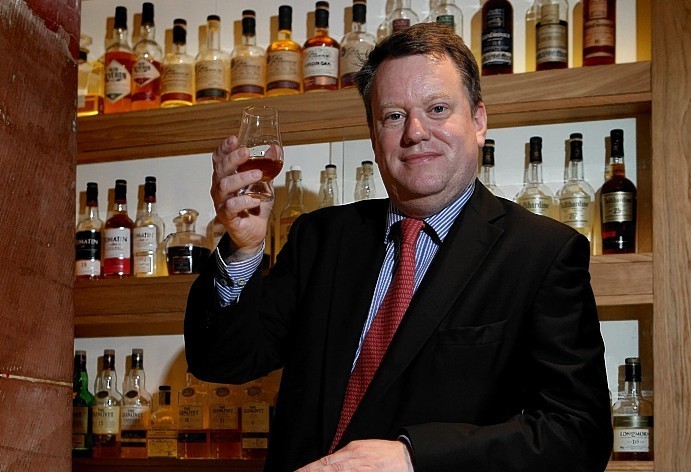A 2% cut in duty on wine and spirits would give Chancellor George Osborne a £1.5billion boost to the public finances in 2015, new industry analysis by EY has today revealed.
The Wine and Spirit Trade Association (WSTA) and Scotch Whisky Association (SWA) have launched a ‘Drop the Duty!’ campaign, calling for a 2% cut in alcohol duty at the next UK Budget in March 2015.
The ‘Drop the Duty!’ campaign, supported by the TaxPayers’ Alliance, aims to raise awareness of the extremely high rate of tax UK consumers currently pay and mobilise the public to take action.
The campaigners said UK consumers currently pay nearly 80% tax on an average priced bottle of spirits and almost 60% on an average priced bottle of wine.
On a category basis, that means 78% tax on whisky has been calculated to add £10.06 on an average bottle. A 79% tax on gin adds £10.03 to an average bottle, while a 76% charge on vodka means drinkers pay £9.48 to the tax man.
Wine drinkers also pay 56% tax on a bottle of wine, which runs to about £2.93 on an average bottle.
The EY report claims that a 2% cut in duty would boost public finances by £1.5billion through increased investment across the industry; greater tax income from corporation tax and VAT; and from the benefits of jobs created in pubs, bars, restaurants, shops and the wider supply chain.
The accountancy firm’s report estimates that the duty cut would increase the wine and spirits industry’s contribution to economic activity by £3.9billion to £50.4billion.
UK GDP would could also expect a £900million boost to £12.7billion, the report adds.
It found that the wine and spirit industry directly or indirectly supports around 518,000 jobs in the UK in 2014, with the majority (69%) directly dependent on the industry’s activity.
Using the strapline, ‘Small drop, big cheer’, the campaign is calling on all UK consumers to take action and speak out about the unfair level of tax by emailing their MP via the campaign website, www.droptheduty.co.uk, to urge Mr Osborne to make this the 2% cut in duty across all alcohol products in Budget 2015.
Miles Beale, chief executive of the Wine and Spirit Trade Association, said:
“The wine and spirit sector already makes a significant contribution to the wider hospitality industry and to the British economy. Independent analysis from EY shows that the sector’s economic contribution could be £3.9billion greater if it weren’t for the UK’s sky-high duty rates.
“By cutting the duty on wine and spirits at the next Budget the Chancellor would provide welcome relief for the British public, boost jobs and growth and generate an additional £1.5billion for the public finances.
“It is important that the Chancellor hears this message directly from consumers so I am encouraging all our supporters to make their voice heard by joining the ‘Drop the Duty!’ campaign.”
David Frost, chief executive of the Scotch Whisky Association, said: “If you buy a bottle of Scotch whisky to celebrate Christmas and New Year, nearly 80% of the average price you pay goes straight to the Government.
“This is unfair on both consumers and the Scotch whisky industry. We are calling for George Osborne to do the right thing and cut excise duty by 2% in next year’s Budget.
“New evidence shows that lowering these draconian levels of excise duty would actually boost public finances and the economy, as well as benefit consumers.”
Jonathan Isaby, chief executive of the TaxPayers’ Alliance, said: “Politicians keep talking about a cost of living crisis but if those on the lowest incomes fancy a drink, they will pay through the nose in taxes.
“Over half the cost of an average priced bottle of wine and over three quarters of an average priced bottle of spirits now goes straight to the taxman.
“This is not only hurting hard-pressed consumers, but jobs and growth too. The Chancellor has one more chance to be fair and cut the duty on wine and spirits before the election, and it’s crucial that he takes it.”
